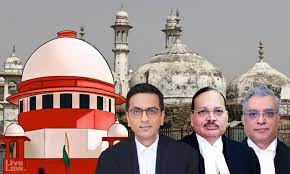Creeping change: On the High Court ruling in the Gyanvapi Mosque case
Courts should be wary of incremental steps to alter status of places of worship
By holding that a suit filed by five women to offer worship to Hindu deities at the Gyanvapi Mosque in Varanasi was maintainable, the Allahabad High Court has possibly legitimised a clever attempt to question its status. In an order that upholds a district court verdict to the same effect, Justice J.J. Munir has ruled that the suit is limited in scope to enforcing the plaintiffs’ right to worship Hindu deities and that it is not an attempt to convert the mosque into a temple. As a result, he has held that the suit is not barred by the Places of Worship (Special Provisions) Act, 1991, a law that froze the status of places of worship as they stood on August 15, 1947. In the process, the court has rejected the objections by the Committee of Management of the Anjuman Intezamia Masjid, Varanasi, that the suit is barred by the 1991 law, as well as the Uttar Pradesh Wakf Act, 1995, and the U.P. Sri Kashi Vishwanath Temple Act, 1983. Given the fact that Hindu revanchism has been quite active in claiming that several places of worship of Muslims had been constructed on the ruins of Hindu temples after their demolishment, it is a matter of concern that the judiciary has endorsed the use of legal means to lay the foundation to building a possible future claim on the Gyanvapi Mosque.
The court is right in noting that while deciding a motion to reject a civil suit at the threshold, it has to limit itself to the assertions made in the plaint. The plaintiffs have claimed that Hindu deities were being worshipped at the mosque precincts before and after August 15, 1947. In particular, they have claimed that daily worship of Hindu deities was going on at Gyanvapi till 1990, after which it was suspended at the peak of the movement against the Babri Masjid in Ayodhya. After 1993, it was limited to a single day every year. A relevant question is whether it is merely a suit to assert a right to worship, or if it is part of a larger design. The court has rejected the objection that the suit is an instance of ‘clever drafting’ to cover up an attempt to change the mosque’s status. However, it should be noted that the plaintiffs also question whether the mosque was built on Wakf property, and assert that property vested in the deity would remain with the deity even if the structure was destroyed. It will be truly unfortunate if the customary right of worship is allowed to lead to incremental or creeping changes to the mosque’s status.
